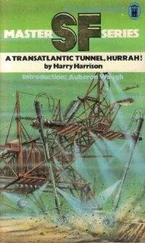THERE WERE STILL sheets of glass in the basement downstairs, made of the finest, clearest sand. She caught sight of herself in the reflection: thirty-six years old now, slight, still fair-haired but an edge of gray at the temple. Her eyes were lined and her neck deeply striated.
ONE EVENING SHE spied a dark-haired soldier in the basement: he had broken the lock on the door and rearranged the sheets of glass into a standing box around him. He sat inside the glass coffin, a sharp laughter rolling from him. He was, she knew, full of laudanum.
In the morning, the sheets of glass were perfectly rearranged, neatly stacked in the corner, and the soldier was in line to go back to the battle. He was one of the ones, she thought, who would survive.
— Look out for my son, she said to him.
The soldier stared beyond her.
— His name is Fitzpatrick. Thaddeus. Goes by Tad. He wears a harp on the lapel of his uniform.
The soldier finally nodded, but his gaze settled behind her. She was quite sure he hadn’t heard a word of what she said. A shout rang out and he moved away, among the harrowed. They rolled their ponchos, scrubbed their tin cups, muttered their prayers, went off again.
It had become for her a very ordinary sight, the way these soldiers disappeared beyond the trees, as if they had become mute assistants to their muskets.
SHE REACHED FOR a hanging lamp, struck a match, lit the wick. It guttered blue and yellow. She placed the pier glass around it, went out of the ward, lighting all before her. She waited on the stairs outside. Open to the night. A small breeze in the enormous heat. The trees darker than the darkness itself. Owls screeched their way through the canopy and bats moved from under the eaves of the factory. Distantly she could hear the yips of coyotes. An occasional sound from the hospital behind her: a scream, the rattle of a trolley along the upper floor.
Lily removed a pipe from the pocket of her Zouave, used a small twig to tamp down the tobacco. Hauled the smoke down deep into her lungs. The small comforts. She clamped the pipe between her teeth, draped her arms over her knees, waited.
She recognized the clack of Jon Ehrlich’s wagon. He pulled the horses up outside the hospital. He hailed her, pitched her the harness rope so she could tie the horses to an iron ring near the basement door. It had become routine. Jon Ehrlich had fifty years on him, maybe more. He wore a forage cap with a leather visor, a logging shirt, a lumber jacket, even in the middle of summer. The ends of his hair were graying where it had once been blond. His back was stooped by work, but still there was a stealth to him. He was taciturn, but when he spoke he had a soft Scandinavian lilt.
On the back of the wagon he had stacked eight crates of ice. He had made a contract with a doctor in the hospital and floated the ice down from storage sheds far north. The ice was carefully packed.
— Ma’am, he said, tipping his cap. Well, then?
— What’s that?
— News? Your boy?
— Oh, she said, no.
He nodded and moved to the back of the wagon, unhitched the ropes and flung them across where they struck the dirt. Underneath the floorboards, there was a small pool of melt.
He took a pin from a hinge, folded down the wooden gate. He used a long iron hook to guide the top crate down. He positioned himself at the back of the wagon, turned, hitched the crate of ice onto his back. Bent his knees and grunted. The weight of the ice deepened his limp.
She lit the way in front of him, a lake of yellow. Down the stairs, past the sheets of glass. They moved through the basement, their shadows multiplying around them. He struggled with the weight of the crate. The size of a sailing trunk. She could hear his breathing, heavy and rapid. She pushed open the ice cellar door. Inside, slabs of meat hung from hooks. Rows of medical supplies lined the shelves. Jars of fruit. The cool blue hit her in a wave. He stepped into the ice-room and stacked the old blocks of ice in the corner. They had melted out of their straight lines. Hard to prop on top of one another. Soon they would disappear.
He pushed the new crate against the wall. Eight times it happened. A silence between them. His lumber jacket wet with ice and sweat.
Jon Ehrlich removed a pair of small pliers from his pocket, carefully opened the crates one by one. Sawdust and straw fell to the floor. He reached in and removed each huge cake of ice, one after the other, wiped them clean with his gloved hands. The new cakes were perfectly planed and straight. A tinge of blue to the edges and then a hard white in the middle. He stacked them in formation. The closer they were, he said, the longer they would last. She sat in the corner and watched him work, then went upstairs to the ward kitchen to fetch him a drink. By the time she returned, he was already sitting on the outside steps, waiting. He had opened a well-worn book. A hard waft of sweat drifted from him. She glanced at the book. The letters meant nothing at all to her.
— That the Bible?
— Yes, ma’am.
She had formed a distrust of men who carried Bibles. It seemed to her that they believed their own voices were somehow embedded there. She had seen them in the churches of New York and St. Louis, raining down their loudness upon the world.
— I’m not saying I’m aligned with every word, said Jon Ehrlich, but some of it makes sense.
He folded the book shut, touched his hat, moved to the wagon, and roweled the horses around. The cart was noisy with its emptiness.
— Good night, ma’am.
— Lily, she said.
— Yes, ma’am.
She slipped back into the cellar and lifted one of the older blocks, three quarters melted. The width of a tea tray now, slippery to the touch. She brought it upstairs to the ward where the two night nurses waited. They placed the old ice in the center of the table and sliced at it with a sharp knife, little edges and slivers that they could place in the mouths of the injured men.
THERE WERE AFTERNOONS she watched the old Negro woman outside at the hut, washing the blood from the uniforms. The tarpaulin roof flapped as she worked, silently, no cane song, no spirituals, only the slap of the tarp punctuating the heat, the woman looking up every now and then at the rows of men still journeying back and forth, carting their corpses.
SHE RECOGNIZED HIM by his feet. He came in a mass of other men. They lay supine on the wagons, their arms and legs entwined, a hideous needlework. He was near the top of the pile, but his face was obscured. She had no need to turn him over. She knew straightaway. He had broken his ankle as a child. The gnarl of the toenails. The curve of the instep. She had massaged that foot. Cleaned the dirt from it. Salved its cuts.
Broderick, the orderly, carried him out of the wagon and laid Thaddeus on the grass. A handkerchief was placed over his face. Flies were already beginning to gather.
— We’ll bury him now, nurse.
Instead she shook her head and turned to carry a soldier upstairs. Broderick lifted his cap, joined her. They shouldered another and then another. Lily arranged them in their beds, scissored through their uniforms. Asked them their names. Tended to the awful mess of flesh. They talked to her of the battle, how they had been pinched on either side by the ranks of gray. How horses had come in upon them. The fog that had opened. The thump of hooves. A casual trumpet silenced in midnote. The thud of bullets into tree trunks.
She attended their every need. Her hand dipped in and out of the washbasin.
It was much later, when all the living had been attended to, that she glanced out the window at the row of bodies still waiting in the grass. Mounds of flesh. Only the clothing would march off again. The jackets, the boots, the buttons. She stood a long while in the silence of the stairway, then set her face hard. She walked outside into the grass and knelt beside him and took the handkerchief from his face and touched his cheek and stroked his bare chin and felt her stomach wrench with the cool against her hand. She undressed him. I expect your risen spirit is listening to me now. When you get up to sit with God or the devil you can curse them both for me. This god-awful manufacture of blood and bone. This fool-soaked war that makes a loneliness of mothers. She undid the buttons on his shirt. Put her hand on his heart. He had been shot just shy of his armpit. As if his own hands had been raised in surrender but the bullet managed to sneak in anyway. A small wound. Hardly big enough to take him away.
Читать дальше












